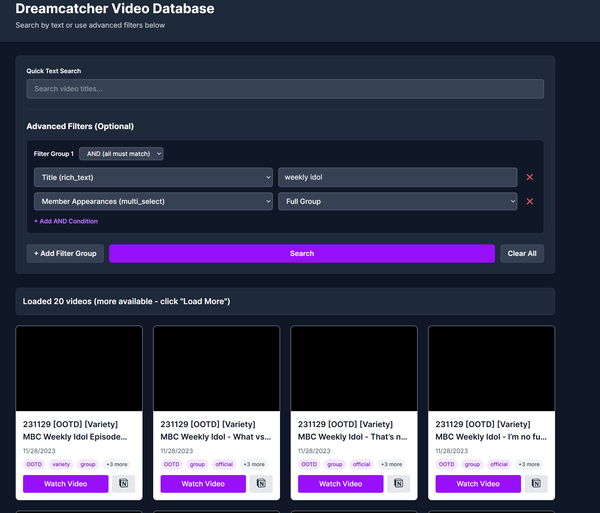A Community Manager's Terrible, Horrible, No Good, Very Bad Day
Front-facing personnel sometimes deal with disaster mode occurrences like Unity's that always have a chance to happen in community management.

Context and disclaimer: By now, you may have heard the recent news that Unity is planning to implement a per-install runtime fee for games that run its engine, which they’ve since updated. The following is a fictional narrative not based on definitive knowledge within Unity or about its inner workings and is meant to use the news as a way to depict what might, at times, happen when Community teams need to work to deal with challenging situations surrounding negative sentiment.
Today is going to suck.
That isn’t quite the thought you usually want to start with, especially when it comes to work, but even though for some days, you’re not sure if it’s going to be true or not, today you know it for a fact.
That’s because today is the day that the Thing is going to be posted.

You’ve dreaded the Thing for about two months now. Ever since the topic of the Thing was brought up in an all-hands meeting, the idea of it trotted out like someone showing you the gaudiest piece of furniture in their house, it’s filled you with a sense of nervousness and dread.
“The Thing will be a solid part of our strategy,” management says, presenting a PowerPoint filled with the soul that only giant infographics and corporate logo branding can give it. “It will allow us to meet our quarterly goals, and we arrived at it through sound and practical, fact-based analysis based on our numbers. Best of all we think it will make up for some challenges over the past year generating revenue, but as always we are always prepared to adapt and re-structure if needed.”
The euphemism that the word “re-structure” seems to imply doesn’t escape you, but that’s not your immediate concern.

In the all-hands, everyone seemed to agree, or at least decide not to speak up. But as management is looking at the effect of the Thing through cold, hard data points and numbers, your Community Management brain is busy breaking down the customer impact and sentiment - how people will feel. How people will react. What they will trend or post about. What your advocates and detractors, some of which command a ton of opinion weight, will think.
Your conclusion? The Thing is very, very bad. It’s so bad that you can’t even really fathom a way out or a means to explain it if sentiment turns negative. It’s so absolutely toxic to the community you oversee that you’re already seeing awful scenarios play out in your head, the equivalent of watching that giant meteor coming toward the planet like in “Armageddon” and not having a plucky, no-nonsense crew led by Bruce Willis and Ben Affleck to deal with it.
Sure, you are an employee of the company, but you’re also an advocate, an on-the-ground worker who knows the reality of how customers use your service day in and day out. Your co-workers may not see the forest for the trees, but you can’t help but see how the forest might catch fire and burn down while they’re working on improving some random oaks in the middle of it.

Over the next two months, you pull every trick you know to subtly, and then more directly, say that the Thing is a bad idea. You write gently worded yet concerned emails. You provide reports from social media that display how doing a previous, similar Thing didn’t go over great. You even get that buddy of yours who works in the finance department to generate some numbers of your own in advance to show how the Thing could be devastated by it. Finally, you’re asked, nicely, but with a tiny bit of firmness, to allow the Thing to play out, and to trust that while your expertise is noted and appreciated, that concerns over the Thing, even if they happened to be received poorly, would be acceptable losses. After all, when the benefit is realized, a few loud folks will be soon forgotten.
It’s discouraging, and certainly even a bit condescending, but you know you’ve lost this battle. You know this for sure when your manager tells you in your 1-on-1 that while they love your work and have your back - heck, even agree with you - that the Thing might be awful, that this is one battle that you can live to fight another day for.

So it is that the day of the Thing being posted has arrived, and, as best you can, you’ve armed yourself for battle. Enough caffeine to feed an army. The trusty spreadsheet you jury-rigged to chart social media numbers because you couldn’t justify the budget for actual reporting software. The decision to work remotely, so you can focus, work in the most comfortable fit possible (aka your PJs), and best of all, field inquiries online instead of being cubicle-ambushed every 5 minutes. You’re as ready as you’re going to be.
The post goes live. The Thing is out in the wild. After about 10 minutes to let the post breathe, you decide to begin to assess sentiment, and, it seems, the damage. You start by checking home base, the community hubs and channels you control, because not only do you have some agency to remove objectionable content, but you also will get your first look at what customers think, from those who’ve invested enough to be in your community spaces.
You open the thread you scheduled to auto-post to discuss the Thing.

The forest, it seems, is on fire.
Scanning the posts, you note the ones that need to be removed from the worst of the worst for now, deciding that if you moderated them too quickly they’d just multiply like locusts. You’re here to play triage for now, not try to put out the whole blaze.
There’s post after post of negativity. “The Thing is the worst decision ever made.”, “You’ve lost a customer because of the Thing”, “How to shoot yourself in the foot with the Thing, speedrun any%”, and more. All of the greatest hits of a universally disliked decision are here.
But the worst part of this is not the sheer number of posts with angry, inflammatory, or snarky commentary, but the few from your tried and true advocates, power users, and long-time veterans.
Someone who’s been responsible for helping customers to getting started with the service decides they’re not going to support the company anymore because of The Thing.
One of your most senior community members, someone with thousands of posts and a balanced, reasonable mindset from which you’ve sourced feedback tons of times dismantles the argument for the Thing as a shameless money grab that is blatantly anti-customer.
And one of your first and most trusted community posters, who you let into the beta program you so carefully curated, posts (and then subsequently deletes, but not before it is screenshotted) an internal correspondence from the program where a co-worker promised never to implement anything like the Thing.
These are the ones you have to take down in notes, the ones you have to send back up the chain and quote, because they are supposed to be your best contributors, but today they are among your most credible detractors. And they’re the ones that hurt the most.

Out in the wild, social media is filled with the mostly unfiltered opinions of the masses. But here, too, scanning through the dashboard you’ve cobbled together to monitor the company’s various networks, you find nuggets of feedback, from well-known, high-follower experts that express levels of concern, anger, and regret about the Thing, to journalists, bloggers, and YouTubers that swiftly create content that amplifies the Thing’s abject flaws. You find at least one meme that makes fun of your company logo by destroying it that happens to have gone viral. You sigh, and save that last one for later private ranting with friends.
You finally get a chance to check the messages in the internal comms that you’ve ignored, except to provide occasional status updates and posts from significantly credible sources decrying the Thing. Reactions ranging from sympathy to confusion to demands for insight fill your notifications to brimming. A meeting request, hastily called for and involving management, has been set for near the end of the normal workday.
In the meeting, you end up trying very, very hard not to say variations of "I told you so” while presenting the hard data and evidence online about the failure of the Thing that you’d predicted, for which you’d been treated like Cassandra for putting forth. And while management currently still seems to be a bit defensively stubborn about retaining the Thing, they’re open to at least listening - at least for now.

So it is that you go from watching the fire to trying to put it out. You lay out a strategy - not the best one, and one that will still rely on a ton of re-building of the goodwill you’d worked so hard to cultivate with your community, but it’s at least better than doing nothing. Your ideal solution, of course, is to walk back the decision to do the Thing and kick it, 300-style, down a pit, but for now, you concede to the incremental updates and clarifications and changes that management subscribes to in order to try to salvage the Thing, but that you know will not soothe feelings. It’s fine - as your manager said, you live to fight another day, and hope, with some amount of difficulty, that management will come around to your point of view. Maybe.
At the end of the day, having wrangled and posted those few clarifications with the appropriate “we heard you” language, and wanting to let things “bake” to gauge updated sentiment, you’ve done all you can. Catching up on meals missed or hastily eaten, messages from friends and loved ones that have various levels of sympathy pain for your day, and taking comfort in one of your favorite leisure activities, you wonder why you keep doing this.
Sometimes, and more often than not these days, you don’t know, pondering a different path that you could have (and may still) take that doesn’t involve herding cats both inside and outside your company and which pays much, much better. But sometimes, you recall some small moment, recently or years ago, where you were thanked and appreciated by someone for what you did to help them in the community. That was a moment of pure joy, one that validated plenty of very non-joyful days. You hold onto that moment like a person clinging to a piece of shipwreck in a storm, and square your shoulders.
Today did suck. But tomorrow? That’s another day, and a chance, however small, for it not to.





